Neuigkeit153/en
The 35th AIK Symposium „Blockchain - Proof-of-Worth“
The Bitcoin Blockchain provided the proof-of-concept for the settlement of trading transactions without central instances as a direct transaction between the supplier and the customer. All processes are always recorded transparently and comprehensibly in distributed data record registers. The latest generation of Distributed Ledger Technology (DLT), to which the Blockchain concept is subordinated, provides a Turing-complete environment for the execution of programs (referred to as smart contracts). In smart contracts, conditions for the automatic handling of business processes can be formulated and implemented. Although DLT has been researched and continuously developed for more than a decade and its potential is equated with that of the Internet, DLT is still not widely used. The reasons for this and the actual potential of DLT were discussed on 25 October 2019 during the 35th symposium of the Association of Applied Informatics Karlsruhe e.V. (AIK) from different perspectives such as computer science, law, and business. Under the theme "Blockchain - Proof-of-Worth“, top-class experts from science and industry gave five talks on the transformative character of DLT from different perspectives.
The symposium, hosted by AIK, was officially opened by greetings from AIK chairman Dr. Roland Schätzle (adviion GmbH), head of the "Informatics, Economics and Society“ division of the Karlsruhe Institute of Technology (KIT) Prof. Dr. Michael Decker, dean of the KIT Faculty of Economics Prof. Dr. Wolf Fichtner, and GI vice president Christine Regitz (SAP supervisory board member). As the organizer of the symposium, Prof. Dr. Ali Sunyaev gave his inaugural lecture on the transformative character of the DLT and a multi-perspective consensus that must be reached across various disciplines (e.g., computer science, law, and economics) in order to make the DLT fit for the future. Subsequently, Prof. Dr. Dr. Walter Blocher (University of Kassel) provided deep insights into the necessity of adapting current laws to the DLT's changing responsibility and liability for commercial transactions and damage caused by defective smart contracts. Prof. Dr. Philipp Sandner (Frankfurt School of Finance) motivated the potentials of DLT from an economic point of view and clarified the applicability of DLT using the example of planned reforms in Liechtenstein. In his technical lecture, Prof. Dr. Volker Skwarek (Hamburg University of Applied Sciences) highlighted the fault tolerance of DLT and the use of DLT in the context of resource-limited devices. In the last lecture, Mr. Holger Köther from the IOTA Foundation talked about the potentials of the IOTA protocol and its sustainability. During the subsequent expert panel, more than one hundred participants had the opportunity to actively exchange ideas with the speakers.
On behalf of AIK and AIFB we would like to thank all participants for the great event and the exciting exchange, and we are looking forward to seeing you again.
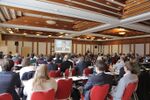
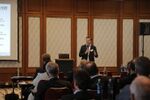
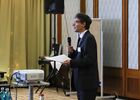
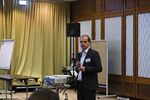
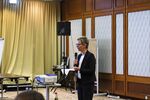
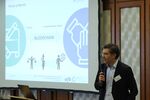
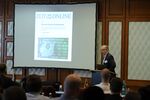
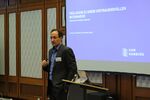
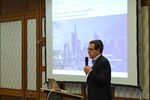
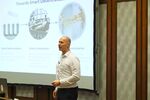
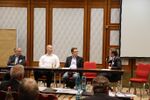
From the research group Critical Information Infrastructures
